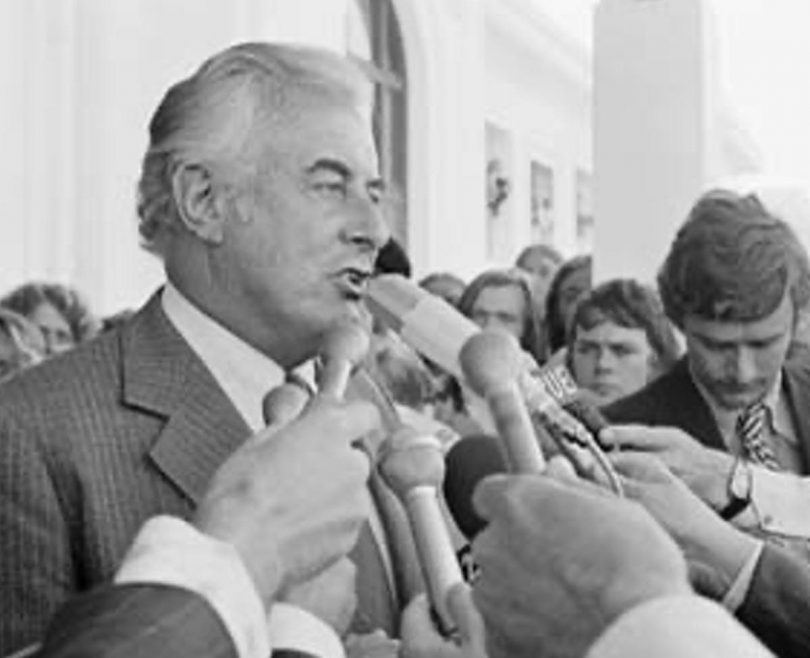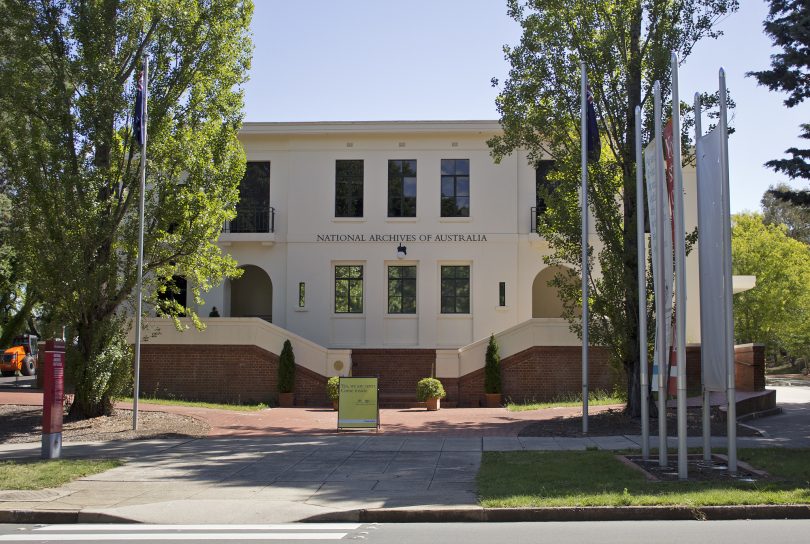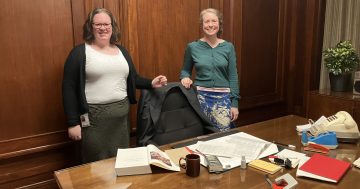
Prime Minister Gough Whitlam on the day of the dismissal. Photo: File.
The long-awaited release of the Palace letters between Governor-General Sir John Kerr and Buckingham Palace, held at the National Archives in Canberra, has revealed that the Queen was not directly informed about Kerr’s decision to dismiss Prime Minister Gough Whitlam in November 1975.
And depending on how closely you read the precisely worded responses from Her Majesty’s private secretary Sir Martin Charteris, it’s possible that the Governor-General was even being warned to carefully consider his proposed course of action.
While Sir Martin acknowledged the Governor-General’s constitutional powers to dismiss a government that could not guarantee supply, he wrote to Sir John a week before the dismissal saying “it’s also clear you will only use them in the last resort, and then only for constitutional – and not for political – reasons”.
In earlier correspondence, Sir Martin confirmed the existence of the reserve powers, but added they had not been used for many years. He writes they should only be used “when there is demonstrably no other course”, and the correspondence discusses whether the crisis was still political or had become constitutional.
The Palace praised Sir John’s “skill and wisdom”, and described his actions as impartial. But it’s not clear from the letters that there was any direct endorsement of his actions, although the Governor-General may have understood that to be the case.

The National Archives’ director, David Fricker, has defended the decision to fight the release of the Palace letters. Photo: File.
It’s taken many years of court challenges to open the correspondence held at the National Archives, now categorised as Commonwealth records rather than private letters. Historian Professor Jenny Hocking has long argued that the people of Australia deserve to know what involvement Buckingham Palace may have had in the biggest constitutional crisis in recent history.
Sir John wrote 116 letters to the Palace and received 95 letters in response. They are part of more than 1000 pages of documents released by the Archives.
The letters, which became public at 11:00 am today, show that Sir John had been considering dismissing the Whitlam Government at least two months before Remembrance Day 1975, canvassing that possibility in his letters to the Palace as early as 12 September.
But he decided not to give the Queen advance warning of his final decision, in part, apparently, because he feared that Prime Minister Whitlam might advise the Queen to dismiss him first.
That possibility had been explored: on 2 October 1975, Sir Martin Charteris refers to “the possibility of the Prime Minister advising the Queen to terminate your commission”. And, Sir Martin wrote, “at the end of the road, the Queen – as a constitutional sovereign – would have no option but to follow the advice of her Prime Minister”.
Sir John feared a situation could develop in which both he and the Prime Minister were both asking the Queen to dismiss each other, writing “I simply could not risk the outcome for the sake of the monarchy”.
The Governor-General conducted a voluminous correspondence with the Palace, at times writing three letters per day. On the day of the dismissal, he passed on his advice from Sir Garfield Barwick, then Chief Justice of the High Court.
But, he said in later letters, “under the Constitution, the responsibility is mine, and I was of the opinion it was better for Her Majesty not to know in advance, though it is, of course, my duty to tell her immediately”.
The letters show that Mr Whitlam had called Sir Martin on 17 November at 4:00 am, asking to be recommissioned as Prime Minister. That letter described Sir John as acting with “perfect constitutional propriety” and noted that the Queen had not known about the dismissal in advance.
The Whitlam Government was defeated in the December election following the dismissal.
Professor Jenny Hocking, whose High Court challenge resulted in the release of the documents, has been given a full digital set of the letters and the National Archives’ director, David Fricker, has praised her perseverance.
He’s also defended the decision to fight the case through several courts on the basis that the Archives was obliged to honour Sir John Kerr’s wish that the letters only be released with the agreement of the Palace.
“They were the rules that we were playing by at the National Archives of Australia. They were the rules that were confirmed by the Federal Court and then the full bench of the Federal Court – that they were not Commonwealth records,” he told a press conference this morning.
“It was, in fact, impossible for me to take any other course of action.”
Mr Fricker said that the extensive correspondence would also likely reveal new details about contemporaneous events, including Cyclone Tracy and Papua New Guinea’s independence.
Canberra historian and avowed republican David Headon says it’s of note that even after the Dismissal, Labor members did not appear to hold a grudge against the Queen.
He quotes “Diamond” Jim McClelland writing just a year and a half after the events of 1975, saying that they did not believe the Queen herself would have contemplated such a action.
“In the eyes of ALP supporters, she emerged unscathed by the crisis”, Headon says. “She was moved to the side while all the way through, Kerr has got the blame”.















